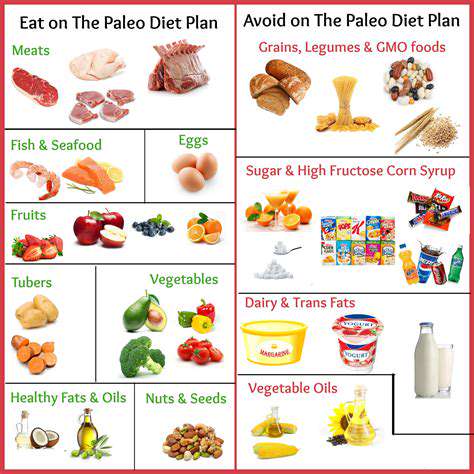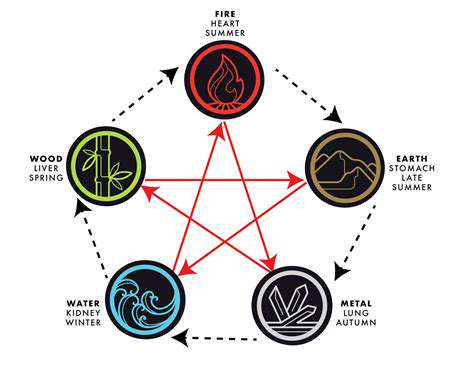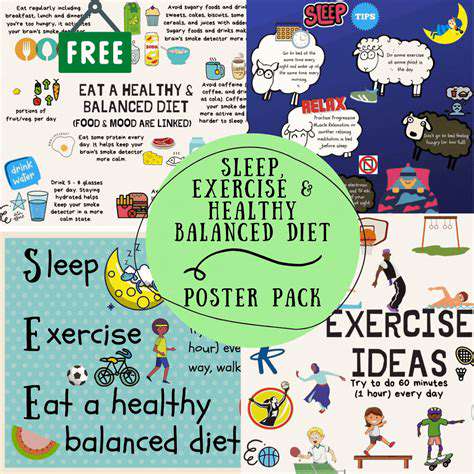Sustainable Weight Loss: Beyond Calorie Counting
Understanding the Importance of Holistic Wellness
Forget crash diets and quick fixes. True weight management success comes from nurturing your whole self—body, mind, and spirit. When we obsess over calorie counts alone, we miss the bigger picture of what our bodies truly need to thrive. A balanced approach considers how sleep, stress, and emotions all influence our eating patterns and metabolism. By addressing these interconnected factors, we create sustainable habits that last.
Consider this: poor sleep can increase cravings for sugary foods, while chronic stress may slow your metabolism. Recognizing these connections allows you to develop personalized strategies that work with your lifestyle.
The Art of Mindful Nourishment
Mindful eating transforms your relationship with food. It's about tuning into your body's natural signals—recognizing true hunger versus emotional cravings. When you slow down and savor each bite, you'll often find you need less food to feel satisfied. This practice also helps identify triggers for emotional eating, allowing you to develop healthier coping mechanisms.
Movement That Brings Joy
Exercise shouldn't feel like punishment. The most effective physical activity is whatever you'll consistently enjoy—whether that's dancing, hiking, or playing with your kids. Regular movement does more than burn calories; it enhances mood, improves sleep, and boosts energy levels throughout the day. Find activities that make you feel alive rather than drained.
Remember: even short bursts of activity add up. A 10-minute walk after meals or stretching breaks during work can make a significant difference over time.
Stress: The Silent Metabolism Saboteur
Chronic stress creates hormonal changes that can lead to weight retention and cravings. Simple techniques like box breathing (inhale for 4 counts, hold for 4, exhale for 4) or nature walks can help reset your stress response. Building daily stress-relief habits creates a foundation for better metabolic health and more mindful eating choices.
Sleep: Your Secret Weight Management Ally
Skimping on sleep disrupts leptin and ghrelin—hormones that regulate hunger and fullness. Aim for consistent sleep and wake times, creating a dark, cool environment for optimal rest. Quality sleep supports willpower, decision-making, and even workout recovery—all crucial for lasting weight management.
Nourishment Beyond Numbers
Shift your focus from restriction to nourishment. Colorful vegetables, quality proteins, and healthy fats provide the nutrients your body craves. When you prioritize nutrient-dense foods, you'll naturally feel more satisfied while consuming fewer empty calories. This isn't about perfection—it's about consistently choosing foods that fuel your best self.
Prioritizing Nutrient-Dense Foods: Fueling Your Body for Success

The Power of Nutrient Density
Nutrient-dense foods deliver maximum nutrition per calorie. Think of them as nutritional powerhouses—packed with vitamins, minerals, and antioxidants. Choosing an orange over orange juice, or quinoa instead of white rice, gives your body more of what it needs with fewer empty calories. These choices support everything from energy levels to immune function.
Building a Rainbow Plate
Different colored fruits and vegetables provide unique phytonutrients. Dark leafy greens offer iron and folate, while orange produce provides beta-carotene for immune support. Try adding one new colorful vegetable to your meals each week to naturally expand your nutrient intake.
Protein: The Building Block of Satisfaction
Quality proteins like eggs, fish, and legumes help maintain muscle mass and keep you feeling full longer. Including protein with each meal stabilizes blood sugar and prevents energy crashes that lead to cravings. Even small additions—like nuts on oatmeal or beans in soup—can make a significant difference.
Smart Fats for Brain and Body
Healthy fats from avocados, olive oil, and fatty fish support hormone production and nutrient absorption. Contrary to outdated advice, these fats don't make you fat—they help regulate appetite and support metabolic health. A drizzle of olive oil on vegetables actually helps your body absorb their fat-soluble vitamins.
Practical Nutrition Strategies
Start with simple swaps: choose whole grain bread instead of white, snack on nuts instead of chips. Prepping vegetables when you get home from the store makes healthy eating effortless throughout the week. Remember—progress beats perfection. Even small, consistent improvements in your food choices compound over time.

Building a Supportive Environment: Making Sustainable Changes Easier
Creating a Foundation of Trust
Supportive environments begin with psychological safety—where people feel comfortable sharing struggles and successes. When we remove shame from the equation, sustainable change becomes possible. This might mean finding an accountability partner or joining a community with similar health goals.
Setting Up for Success
Make healthy choices the easy choices. Keep cut vegetables at eye level in your fridge, or prep healthy snacks for busy days. Your environment has a powerful influence on your decisions—shape it to support your goals. Something as simple as using smaller plates can help with portion control without feeling deprived.
The Power of Community
Surround yourself with people who uplift your health journey. Whether it's a walking group, cooking class, or online community, shared experiences create motivation and accountability. Celebrate non-scale victories together, like having more energy or sleeping better.
Navigating Challenges
Anticipate obstacles and plan solutions. If evening snacking is a challenge, try brushing your teeth after dinner or having herbal tea instead. Every challenge overcome strengthens your ability to maintain changes long-term. Remember—setbacks are part of the process, not reasons to give up.
Celebrating Progress
Acknowledge every step forward, no matter how small. Sustainable change happens through consistent small wins, not overnight transformations. Keep a journal of non-scale victories—better energy, improved mood, clothes fitting differently—to stay motivated on your journey.











